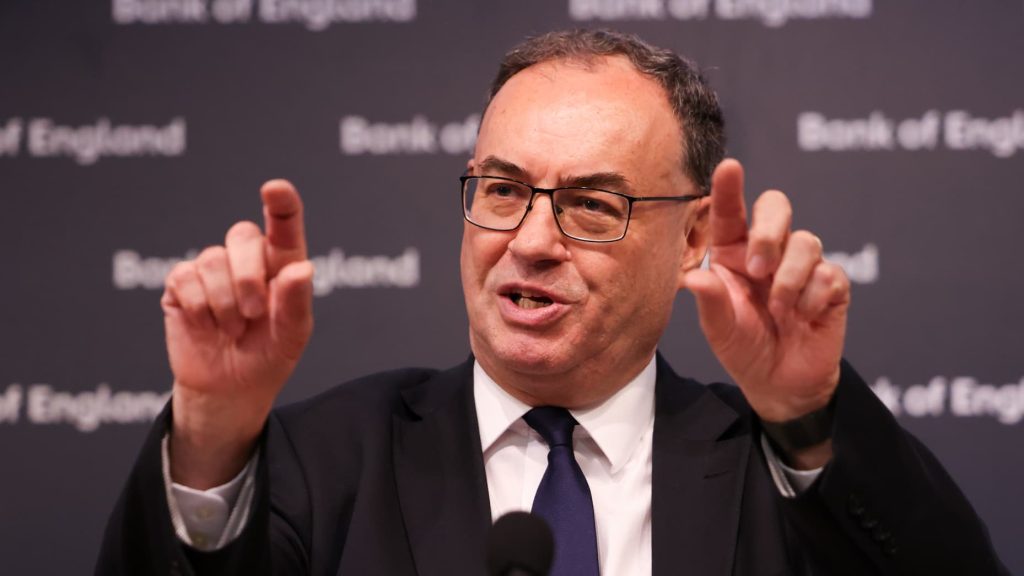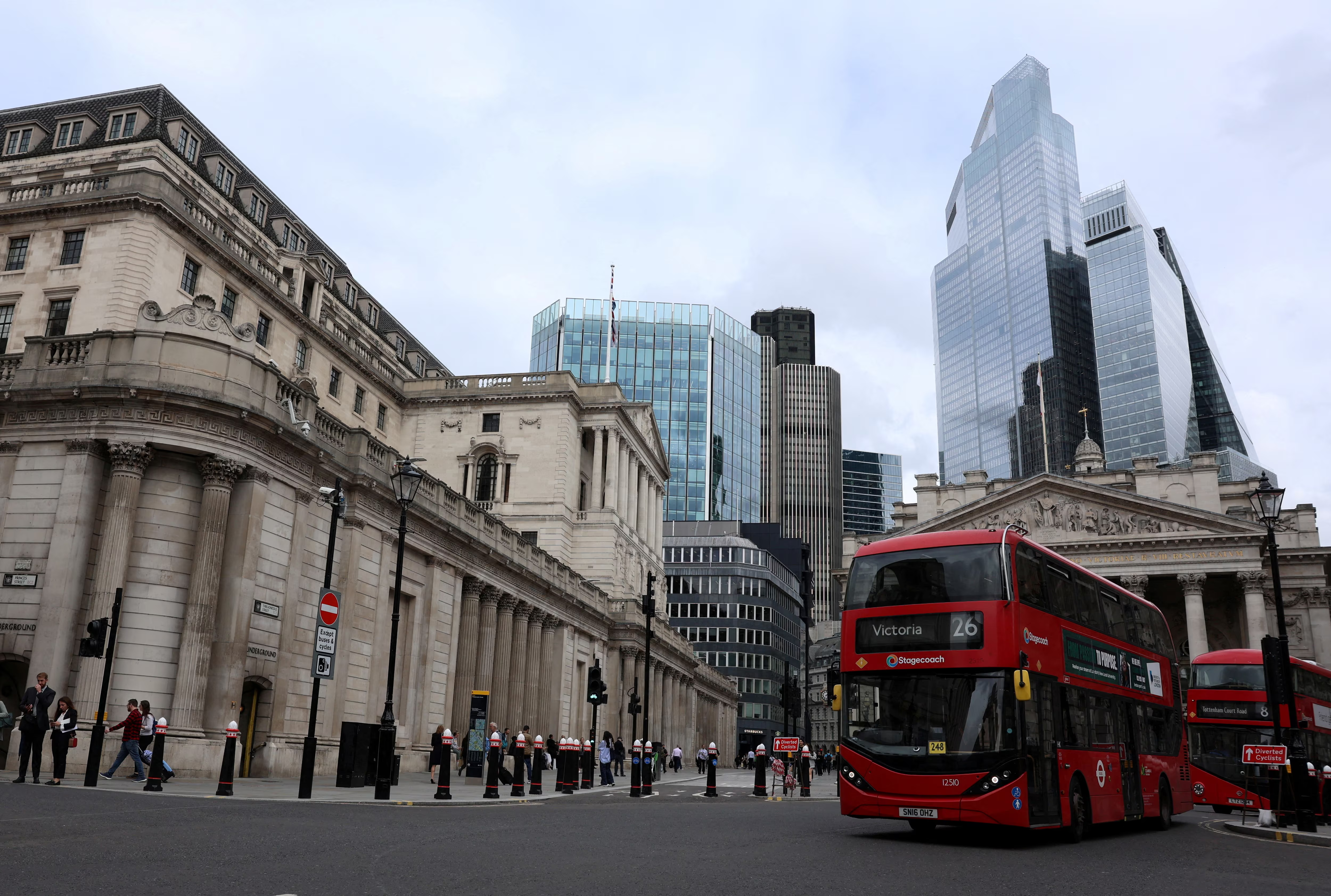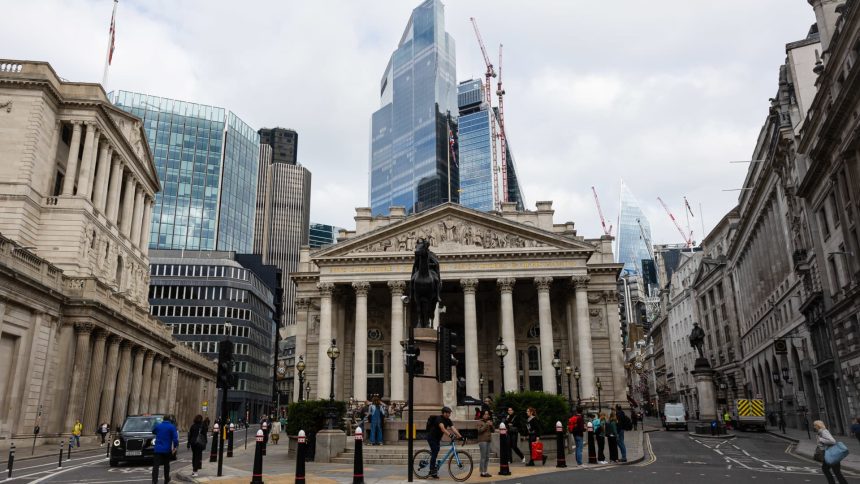The Bank of England (BoE) has sounded the alarm over rising trade barriers and their potential to slow global economic growth, disrupt financial markets, and exacerbate inflation uncertainties.
In its latest Financial Stability Report, the BoE highlighted the cascading effects of geopolitical shifts and policy fragmentation, warning that these trends could increase borrowing costs for businesses and households while destabilizing the global financial system.
Although the BoE refrained from explicitly linking its concerns to the recent U.S. presidential election results, the timing of the warning coincides with Donald Trump’s reelection and his known stance on protectionist trade policies.
The central bank noted that higher trade barriers might reduce cross-border capital flows and hinder risk diversification, thereby amplifying vulnerabilities in the financial system.

“We are seeing an increased risk of global fragmentation,” said BoE Governor Andrew Bailey during a press briefing. However, Bailey avoided singling out the U.S. election, emphasizing instead the multiplicity of factors driving this trend.
The BoE warned that diminished international policy cooperation could impede progress in bolstering the resilience of financial systems worldwide. This lack of coordination, the bank suggested, could hinder efforts to weather future economic shocks, thereby magnifying existing uncertainties around growth and inflation.
READ ALSO: South Korea Scrambles Jets as Chinese and Russian Military Aircraft Enter Air Defense Zone
While UK households, businesses, and banks remain robust, the BoE acknowledged that the country’s financial sector faces heightened risks due to its openness to global markets. In particular, the report cited the potential for volatility in financial markets, driven by sharp corrections in asset valuations or unexpected shifts in interest rate expectations.
The central bank underscored that vulnerabilities in market-based finance—such as hedge funds and non-bank financial institutions—could amplify these risks. A sudden financial shock, for instance, might force these entities to conduct “fire sales” of assets like corporate bonds, destabilizing the broader financial ecosystem.

High levels of public debt in numerous economies worldwide pose another threat to financial stability, the BoE said. Rising debt burdens, coupled with uncertain economic recovery trajectories, could limit governments’ ability to respond effectively to potential crises.
Despite these challenges, the BoE maintained that there is no inherent trade-off between financial stability and economic growth.
READ ALSO: Russia Accused of ‘Staggeringly Reckless’ Sabotage Campaign Across Europe
Responding to criticism from UK Chancellor Rachel Reeves, who suggested that strict financial regulations could hinder economic expansion, Bailey pushed back: “Put simply, there is not a trade-off between financial stability and growth. This is a fundamental point.”
To enhance the competitiveness of the UK’s banking sector without compromising stability, the BoE announced a shift in its stress testing framework. Beginning in 2025, the central bank will conduct full stress tests of UK banks every two years instead of annually.

This move aims to reduce administrative burdens on lenders while allowing the BoE to focus on emerging risks. In the intervening years, less comprehensive desk-based assessments will be conducted as needed.
The BoE also kept its countercyclical capital buffer (CCyB)—a reserve designed to be drawn upon during financial crises—at its neutral level of 2%. This “rainy day” fund ensures that banks remain well-capitalized and equipped to withstand periods of economic stress.
READ ALSO: Pep Guardiola Reflects on Manchester City’s Form: “We Will Be Back”
The BoE’s concerns come against a backdrop of rising geopolitical tensions and economic uncertainty. The central bank stressed the importance of maintaining minimum international financial standards, especially in light of potential policy changes under the new U.S. administration.
Bailey highlighted that the costs of supporting financial resilience today are significantly lower than the long-term costs of inaction. “The cost of supporting resilience now is far outweighed by the potential consequences of failing to act,” he said.

As the global economy faces heightened risks from trade fragmentation, geopolitical instability, and high public debt levels, the BoE’s report serves as a sobering reminder of the interconnectedness of global financial systems. Strengthened cooperation among nations and vigilant monitoring of systemic risks will be crucial to navigating the uncertainties ahead.
With its proactive approach to stress testing and its commitment to safeguarding financial stability, the Bank of England aims to ensure that the UK’s financial system remains resilient amid an increasingly volatile global landscape. However, the broader question of whether international cooperation can be sustained in a fragmented world remains unanswered.

